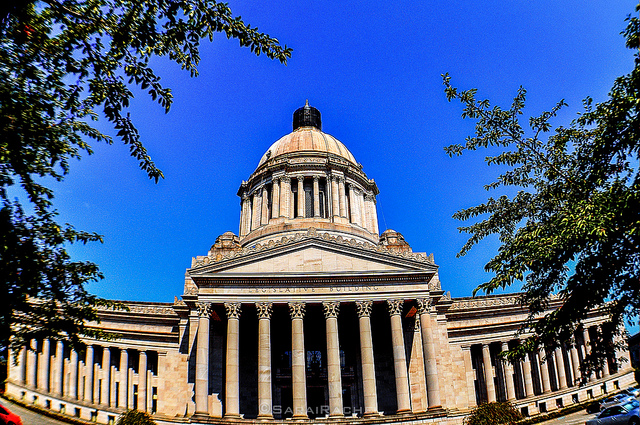Ed. Note: Legislation creating Washington’s Small Business Retirement Marketplace was developed and supported via collaboration between the Economic Opportunity Institute, AARP Washington, Small Business Majority, and state legislators.
A growing number of state legislatures are trying to solve the nation’s retirement savings crisis.
Last week, Washington state became the second state in the nation—after Illinois—to authorize its own state-run retirement savings program for a broad spectrum of companies. The goal: to get small businesses, many of which don’t currently offer retirement savings plans, to deduct contributions from employees’ paychecks and funnel them into individual retirement accounts, where money can grow tax-deferred until retirement.
Washington and Illinois are on the cutting edge of a trend. Currently, 25 states are either studying similar state-run retirement savings plans or are actively considering legislation that would establish one, says Sarah E. Mysiewicz Gill, a senior legislation representative at AARP, which supports the efforts through its Work & Save initiative. Such efforts are “really hitting critical mass,” she says.

WA Sen. Mark Mullet and WA Rep. Larry Springer, co-sponsors of 2015 legislation establishing the Small Business Retirement Marketplace
Massachusetts is in the early stages of implementing a 2012 law that creates a state-run 401(k) program for employees of nonprofits with 20 or fewer workers. Other states, including California, Minnesota, Connecticut and Oregon, are conducting feasibility studies that are likely to pave the way for similar programs aimed at all small businesses, says Ms. Gill, who expects Oregon and New Jersey to pass legislation to establish plans by year-end.
States are motivated to take action because “a lot of the burden is going to fall on state and local governments to provide public assistance” for retirees with insufficient savings, says David John, a senior strategic policy adviser at AARP Public Policy Institute in Washington.
Currently, more than half of working-age Americans have no retirement-plan coverage at work. For years, policy makers have been searching for ways to address the problem by enticing small businesses to offer their employees 401(k)-style retirement savings plans. The Center for Retirement Research at Boston College calculates that 53% of working-age households are at risk of being unable to maintain their pre-retirement standard of living after they stop working.
Read the full story at The Wall Street Journal »
More To Read
November 1, 2024
Accessible, affordable health care must be protected
Washington’s elected leaders can further expand essential health care
September 24, 2024
Oregon and Washington: Different Tax Codes and Very Different Ballot Fights about Taxes this November
Structural differences in Oregon and Washington’s tax codes create the backdrop for very different conversations about taxes and fairness this fall
September 10, 2024
Big Corporations Merge. Patients Pay The Bill
An old story with predictable results.

